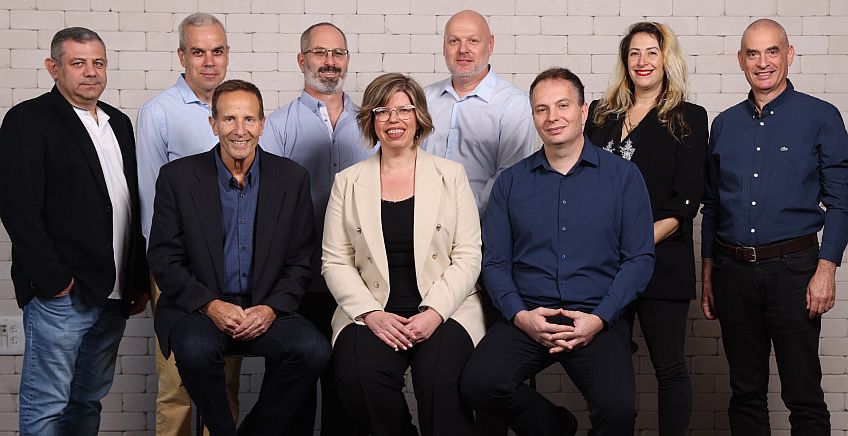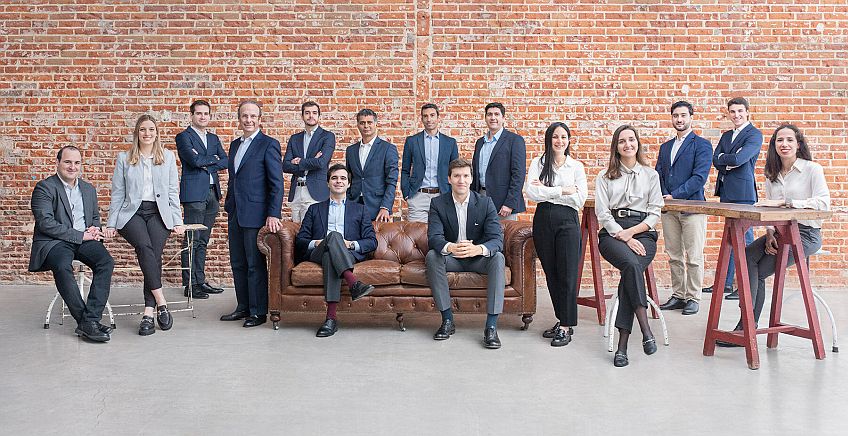“Midas touch” or “Is it for real?”
10 November, 2021
The medium and small size Hi-tech companies are those who truely pull the train. How long can they stay in the game when the basic conditions become so difficult? Here are 3 ways [guest article]

By Leehee Gerti, Director of Marketing at CodeValue
In recent months, the media has been buzzing with news items about huge salaries and dreamy working conditions in the Israeli high-tech market. Highways sidelines and the entrance to High-tech industrial parks have become a billboard war zone, the TV ad breaks are dominated by the industry giants, radio broadcasts, International DJs perform in rooftop parties. What the hell is going on here?
Welcome to the jungle. Here, too, the strong will survive and by survival, I mean – succeed in recruiting talents to expand its workforce and meet the ambitious development goals to which it committed in the last of IPO. We are only at the beginning of the post-corona era and perhaps it is too early to reach conclusions about the lessons and processes that this plague has taught us. But one fact stands out and cannot be disputed – the corona plague has caused an unprecedented wave of technology adoption by businesses across all spectrums of the industry.
There is a lot of money in the market, and it is flowing directly to high-tech companies. They in turn formulate ambitious development goals and desperately need working hands that will write all this code. In other words, companies dealing with wage inflation in the super-competitive field. Established and Unicorn companies with gigantic budgets are pushing up the entire market. These terrain conditions combined with the characteristics of the Millennials/X/y/Z generation (and whatever comes after), creates a ticking time bomb.
“What is the problem?” “The time has come for the power to be in the hands of the workers and not of the corporates.” “If there is a lot of money in the market, it is better for it to reach the last link in the chain – the employee.”
This is all true. But..
As in any industry, the big, rich companies are at the front. But the locomotive that pulls this train forward is the medium and small size companies. Israel is a startup super-power, from these initiatives comes innovation and technological creativity, how long can they stay in the game when the basic conditions become so difficult? The entire industry needs to understand that until we can fill the ranks by investing in infrastructure, technological education in the periphery and encouraging employment in marginal sectors, there is an immediate need to change the conditions of the game. Here are 3 (well tested) ways to maximize the workforce and meet business objectives:
- Expanding employed ad-hoc – creating condensed tech’ bootcamps (here at CodeValue they are called Techboost). Locating and recruiting employees with some technological background and high independent learning abilities and training them, by experts, in modern and required technologies. It really does work, we at CodeValue are already in the third cycle of exactly this type of training and all the graduates are already employed in our various projects within the best companies in the market.
- Widening R&D departments with organic teams – Companies that provide development services have qualified and available manpower and a layer of experienced tech’ managers who can provide an immediate solution to meet development goals. An organic team derived from the dev’ services company, receives a development task from the client and fills it in to its completion. The customer, on the other hand, is not required to locate, recruit and train employees, which is time-consuming, nor is it required for administrative and logistical management. It only receives outputs without the unnecessary fuss.
- Hybrid offshore – This is not a new idea, many companies turn to hire the services of dev’ teams/individuals from the developing world (Eastern Europe, Asia). Many companies have tried and burned since the quality of code is not always at the required level and the language and cultural barriers are also extremely difficult to surpass. The hybrid solution addresses exactly these pain points. We are talking about an Israeli team leader, an expert in his/her field, who directly manages and professionally guides the foreign development team that was handpicked and carefully trained by him/her. This skips over the failures of managing a foreign and remote team and manages to reduce the time to market significantly.
Times are challenging and great power can be intoxicating. Remember how we were really scared just a year and a half ago? That there was uncertainty in the market and many companies were quick to “release” their employees? 40+ industry veterans also remember the .com era at the turn of the century. On that time too the market seemed to play into the favor of the worker, but then the bubble bursts or the plague erupts and the companies that chased after you and wrapped you with pampering benefits are turning their backs and leaving you behind. So, when the skies are blue and no cloud in sight, it might be a good idea to buy an umbrella?
CodeValue, founded in 2010, is a services company delivering architectural and technical expertise and in-depth consultancy. CodeValue integrate product & design research in our development process, provide managed software and cloud solution, and offer customized training programs to bridge knowledge gaps.
Posted in: News
Posted in tags: CodeValue , Leehee Gerti



